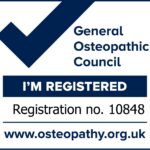What is snoring?
Snoring happens when air can’t flow easily through the mouth or nose. When the air is forced through an obstructed area, soft tissues in the mouth, nose and throat bump into each other and vibrate. The vibrations make a rattling, snorting or grumbling sound.
Snoring can interrupt sleep. Loud, long-term (chronic) snoring can be a sign of a serious disorder called obstructive sleep apnea. A wide range of surgical and nonsurgical treatments can stop or reduce snoring.
What are the symptoms of snoring?
Snoring sounds range from quiet vibrations or whistles to very loud grumbling, snorting or rumbling. Some people might not realize they’re snoring when they sleep. People who snore may toss and turn at night, have a dry, sore throat when they wake up and feel tired during the day. Lack of sleep can cause headaches, difficulty focusing and moodiness. Besides snoring, some people gasp for air and stop breathing for a few seconds while they’re asleep. These are signs of sleep apnea, a disorder that leads to serious health problems if it isn’t treated.




